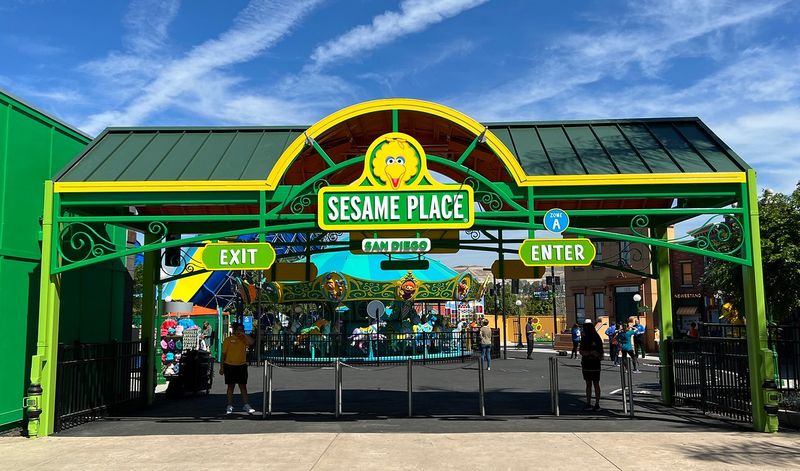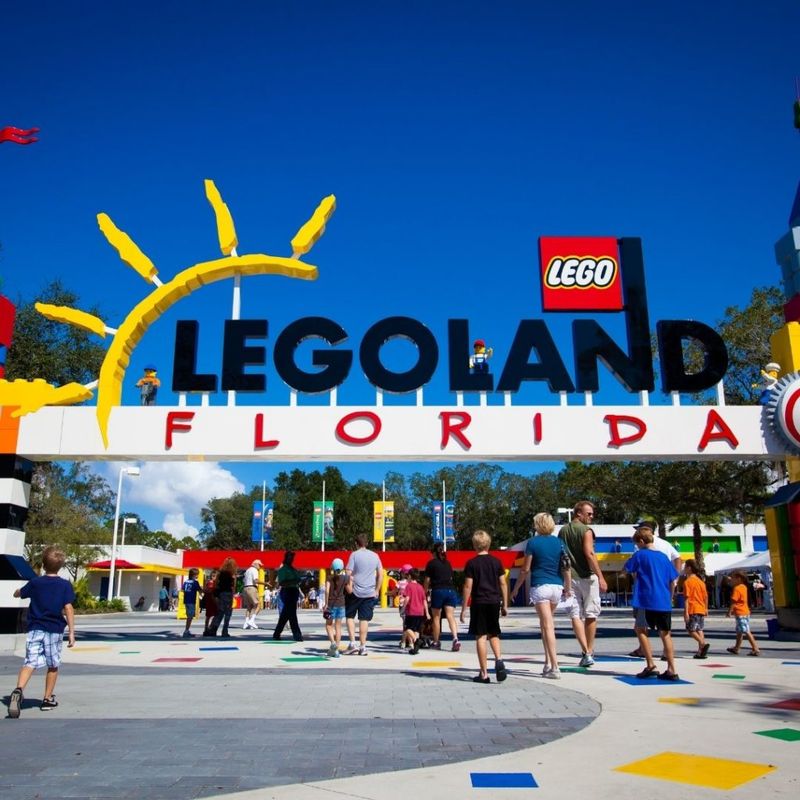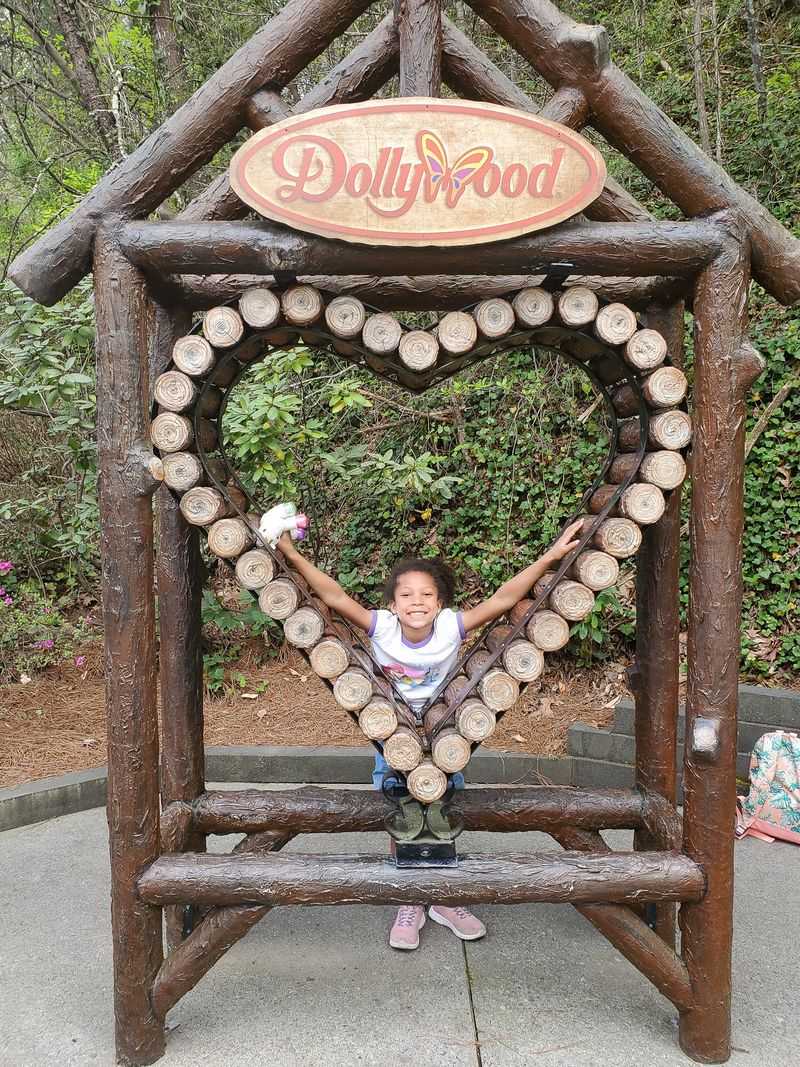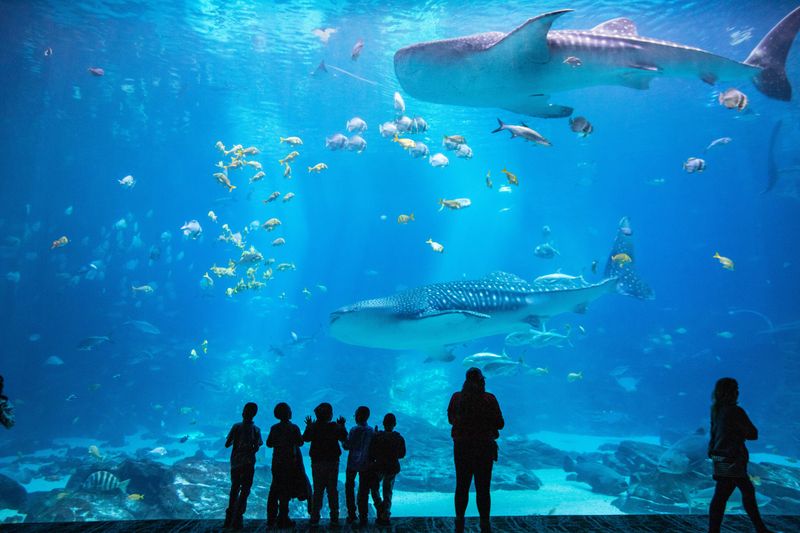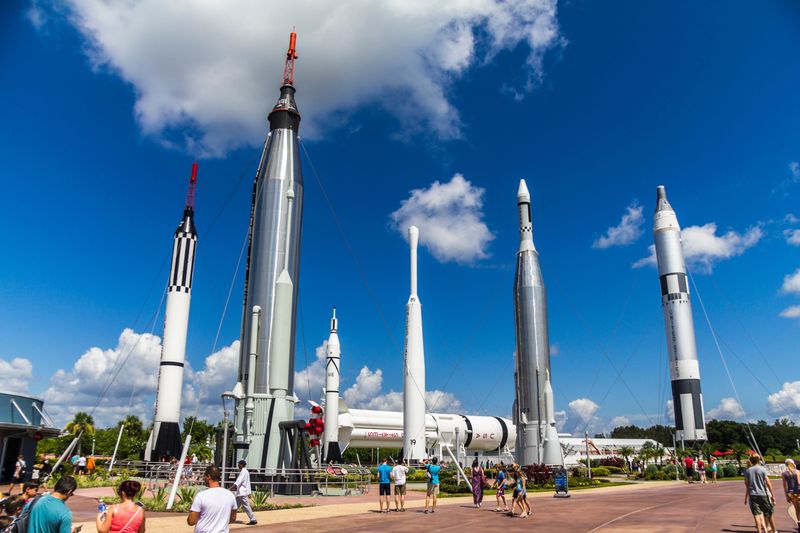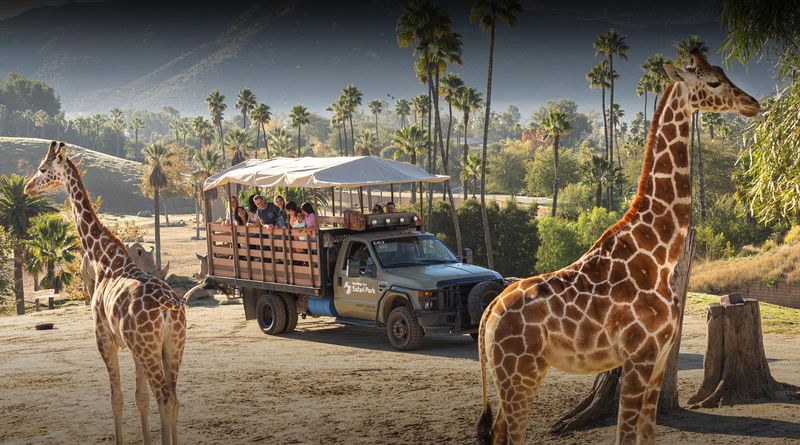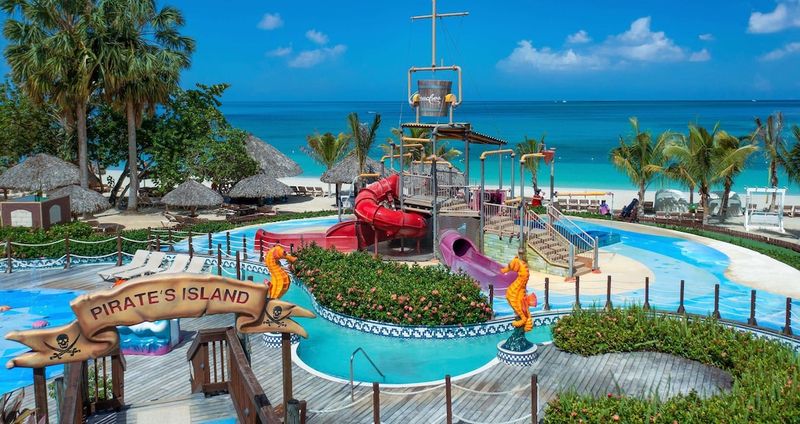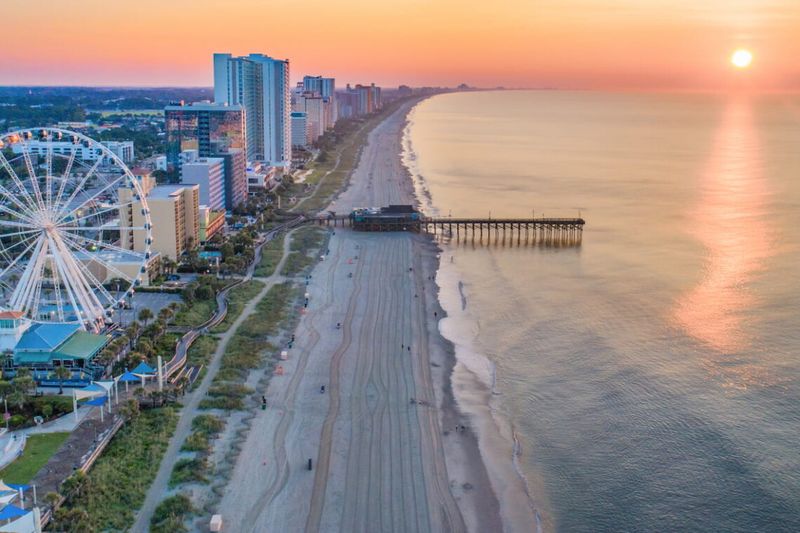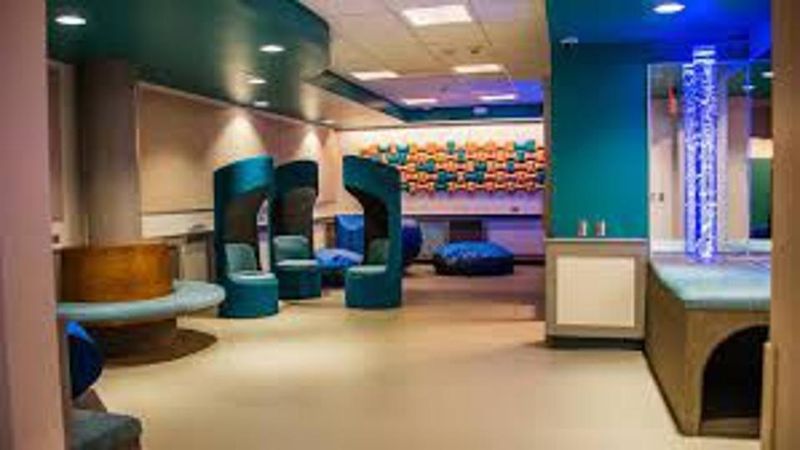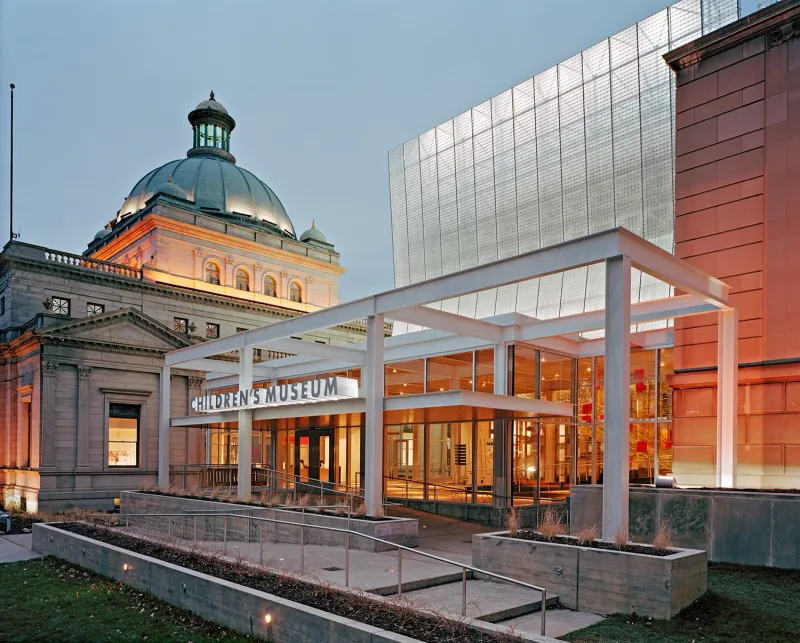Planning a family vacation when someone on the spectrum is coming along can feel overwhelming. You worry about sensory overload, meltdowns in crowded spaces, and whether staff will understand your child’s needs. Fortunately, a growing number of destinations have stepped up with quiet rooms, sensory guides, and trained employees who truly get it. These 14 spots prove that travel can be joyful, manageable, and genuinely inclusive for neurodiverse families.
1. Sesame Place (San Diego, CA & Langhorne, PA)
Both locations earned their stripes as Certified Autism Centers, a designation that requires real commitment. Staff undergo regular training to recognize sensory needs and de-escalate tough moments with patience.
Families can download sensory guides before arriving, mapping out which rides might be loud or dark. Quiet rooms tucked throughout the park offer a lifesaver when your child needs a reset away from crowds and music.
The certification was renewed in 2024, proving ongoing dedication rather than a one-time publicity stunt. Pre-planning resources on the website walk you through every attraction’s sensory profile, so no surprises derail your day.
2. LEGOLAND Florida Resort (Winter Haven, FL)
This was the first LEGOLAND in North America to achieve Certified Autism Center status, setting the bar for the entire chain. Every attraction comes with a downloadable Sensory Guide that details noise levels, lighting, and crowd intensity.
Multiple quiet spaces are scattered across the park, clearly marked so you can find them fast when overwhelm strikes. Staff training in autism sensitivity means employees understand when a child needs extra time or a calmer approach.
Brick-building appeals to many kids on the spectrum who love structured, hands-on activities. The resort’s commitment goes beyond a checklist, weaving accessibility into the guest experience from parking lot to closing time.
3. Dollywood (Pigeon Forge, TN)
Back in 2016, Dollywood opened one of the theme-park industry’s first dedicated calming rooms, and it remains a standout feature today. The space offers dim lighting, soft seating, and minimal noise so overwhelmed guests can decompress without leaving the park entirely.
While other parks have since added similar amenities, Dollywood’s early adoption shows genuine care for neurodiverse visitors. The room is easy to locate near guest services, and staff know to direct families there discreetly.
Beyond the calming room, the park’s Southern hospitality translates into patient, understanding interactions. When you need a quiet reset mid-visit, that dedicated space makes all the difference between a meltdown and a manageable moment.
4. Georgia Aquarium (Atlanta, GA)
Partnering with KultureCity transformed this aquarium into a sensory-inclusive destination. A dedicated sensory room provides refuge when the crowds or echoing halls become too much.
Sensory bags are available at guest services, stocked with noise-canceling headphones, fidget tools, and visual cue cards. Clear signage throughout the building marks quiet zones and suggests where headphones might help.
Staff receive training to recognize sensory overload and respond with calm support rather than confusion. The aquarium’s website describes low-stimulus practices, so you can prepare your child before arrival. Watching whale sharks glide past is magical, and knowing help is nearby if things get tough makes the experience truly accessible.
5. Kennedy Space Center Visitor Complex (Merritt Island, FL)
Space-obsessed kids often fall on the spectrum, making this Certified Autism Center a dream destination. The complex provides an on-site sensory guide detailing which exhibits involve sudden sounds, darkness, or simulator motion.
Staff training through IBCCES ensures employees understand how to assist neurodiverse guests without drawing unwanted attention. Clear sensory expectations help families decide which experiences to tackle and which to skip.
Seeing real rockets and touching moon rocks can be thrilling when you know what to expect. The center’s commitment to accessibility means you can focus on your child’s wonder instead of worrying about the next sensory surprise. Advance planning tools on the website make prep easy.
6. San Diego Zoo & Safari Park (San Diego County, CA)
Both locations partnered with KultureCity to become Sensory Inclusive sites, training staff and stocking sensory bags at entry points. The Zoo’s mobile app includes quiet-area information, helping you navigate to calmer spots when your child needs a breather.
Social narratives available online let you preview the experience, showing photos and descriptions of what to expect. Safari Park’s wide-open spaces naturally reduce crowding stress compared to traditional zoos.
Sensory bags come with headphones, fidgets, and communication cards that make asking for help easier. Staff recognize the KultureCity lanyard and know to offer patient, informed assistance. Watching animals roam feels peaceful when you have the tools and support to manage sensory needs.
7. Beaches Resorts (Turks & Caicos; Jamaica)
Beaches became the first and only resort company to earn Advanced Certified Autism Center status, a distinction renewed in 2024. Kids’ clubs and programming feature Sesame Street’s Julia, a character designed to represent autism positively.
Staff throughout the resort receive specialized training to recognize and support neurodiverse guests. Activities are intentionally designed with sensory considerations, offering quieter options alongside high-energy fun.
Special dietary support addresses food sensitivities common among children on the spectrum. All-inclusive pricing removes decision fatigue, and the resort’s layout includes calmer zones away from main pool areas. Knowing the entire property understands your family’s needs transforms a beach vacation from stressful to genuinely relaxing.
8. Royal Caribbean (multiple ships/ports)
This cruise line rolled out a fleet-wide autism-friendly initiative that trains youth staff to support neurodiverse kids. Sensory-friendly films and toys in kids’ clubs create welcoming environments without overwhelming stimulation.
Special dietary support helps families manage food sensitivities, and staff coordinate with parents on individual needs. The line partners with Autism on the Seas, which offers optional enhanced services for families who want extra planning help.
Cruising can be tricky with routine-loving kids, but knowing trained staff and sensory-friendly spaces are available makes it manageable. Pre-cruise planning tools let you preview ship layouts and activity schedules. The combination of structure and support turns a floating resort into an accessible adventure.
9. Mesa, Arizona (Destination-wide pick)
Mesa became the first Autism Certified City in 2019, a designation renewed through ongoing training of thousands of employees. Dozens of businesses across the city participate, from museums to restaurants to hotels.
Visit Mesa’s website aggregates all sensory-friendly partners and tools in one place, making trip planning straightforward. You can build an entire itinerary knowing every stop understands and accommodates sensory needs.
Certification isn’t just a badge; it requires real training and accountability. Families report feeling welcomed rather than tolerated, with staff who anticipate needs instead of reacting with confusion. The desert city’s wide-open spaces and clear skies add natural calm to an already accessible destination.
10. Myrtle Beach & Surfside Beach, South Carolina
Surfside Beach pioneered autism-friendly travel destinations in 2016 through Champion Autism Network, and the broader Myrtle Beach area has since joined. CAN Card perks give families priority access and understanding at trained venues.
Participating businesses display certification, so you know which restaurants, attractions, and hotels have trained staff. Regular sensory-friendly events are scheduled throughout the year, from beach activities to theater performances.
The network’s training emphasizes patience and flexibility, turning potential stressors into smooth experiences. Coastal vacations can be sensory-rich with waves, crowds, and bright sun, but knowing support surrounds you makes the beach accessible. Families return year after year, building traditions in a destination that truly gets it.
11. Pittsburgh International Airport – Presley’s Place Sensory Room (PIT)
Flying can be the most stressful part of any trip, which is why Presley’s Place stands out as a purpose-built airport sensory room. The space offers quiet refuge from terminal chaos, with controlled lighting and minimal stimuli.
Families can retreat there before boarding to help children regulate and prepare for the flight ahead. The airport highlights this room as a core accessibility feature, not an afterthought.
Knowing a calm space exists between security and your gate reduces pre-flight anxiety significantly. The room is clearly marked and easy to find, with staff trained to direct families there. A manageable flying day starts with environments that respect sensory needs, making this small room a game-changer for traveling families.
12. Smithsonian Museums & National Zoo (Washington, D.C.)
The Smithsonian publishes pre-visit social narratives that walk children through what to expect before arriving. Sensory maps highlight which galleries might be loud, dark, or crowded, letting families plan their route strategically.
Videos available online show entry procedures, crowds, and layouts, reducing anxiety about the unknown. The National Zoo offers detailed social narratives with quiet-area pointers, so you can map out calm spots in advance.
All of this is free, just like admission, making accessible culture genuinely available to everyone. Staff at information desks understand sensory needs and can suggest less-crowded times or exhibits. Exploring the nation’s history and wildlife becomes possible when preparation tools meet you halfway.
13. Children’s Museum of Pittsburgh (Pittsburgh, PA)
Regular sensory-friendly hours offer reduced lighting, lower sound, and smaller crowds for families who need a calmer museum experience. Social stories and planning supports available online prepare children for what they’ll encounter inside.
The museum’s hands-on exhibits naturally appeal to kids who learn through touch and movement. Staff during sensory-friendly events receive extra training to support neurodiverse visitors with patience and understanding.
If you’re flying via Pittsburgh International and using Presley’s Place, this museum makes a perfect next-day activity. The combination of preparation tools and accommodating hours turns a potentially overwhelming outing into an engaging, manageable adventure. Families leave feeling accomplished rather than exhausted.
14. Pittsburgh, PA (Destination-wide pick)
Visit Pittsburgh maintains a comprehensive city-wide Sensory-Friendly Guide that spans museums, sports venues, theaters, and attractions. This resource lets you build multi-day itineraries knowing every stop has been vetted for accessibility.
The guide details which venues offer quiet spaces, sensory bags, or trained staff, taking guesswork out of planning. From Pirates games to science centers, the city’s tourism board actively promotes inclusive experiences.
Having an entire city committed to sensory-friendly tourism means you’re not limited to one or two spots. Families can explore diverse activities without constantly worrying whether staff will understand. Pittsburgh’s combination of airport accessibility, museum support, and destination-wide commitment makes it a standout for neurodiverse travelers.

